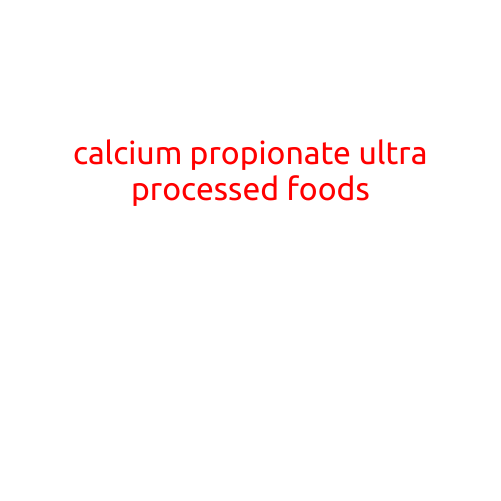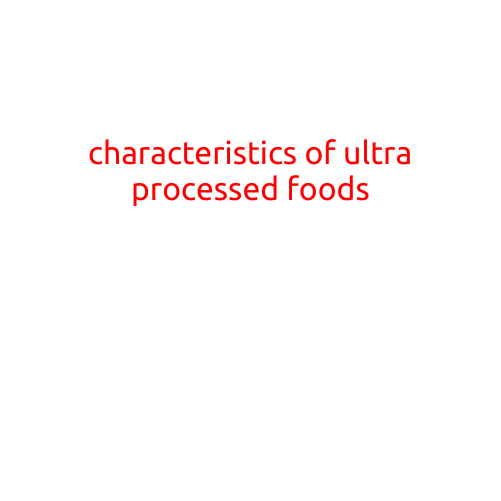
Calcium Propionate: The Ubiquitous Additive in Ultra Processed Foods
Among the countless additives used in the production of ultra-processed foods, calcium propionate stands out as a particularly common and controversial ingredient. A synthetic preservative derived from the natural compound propionic acid, calcium propionate is used to extend the shelf life of a wide range of processed foods. In this article, we’ll delve into the world of calcium propionate, exploring its history, uses, and potential risks associated with its widespread presence in the modern diet.
A Brief History of Calcium Propionate
Calcium propionate was first synthesized in the 1930s as a preservative for food and pharmaceutical products. Initially used in small quantities, its popularity grew rapidly in the post-war era, as the demand for processed foods increased and manufacturers sought to extend the shelf life of their products. Today, calcium propionate is used in countless applications, from baked goods and confectionery products to frozen meals and instant noodles.
Uses of Calcium Propionate
Calcium propionate’s primary function is to inhibit the growth of mold and bacteria in food products. It does this by disrupting the metabolism of microorganisms, preventing them from producing enzymes necessary for their survival. This property makes it an ideal additive for a wide range of applications, including:
- Baked Goods: Calcium propionate is commonly used in bread, cakes, and pastries to prevent the growth of mold and bacteria, extending their shelf life.
- Dairy Products: It’s often added to milk, cheese, and yogurt to prevent spoilage and improve their durability.
- Frozen Foods: Calcium propionate is used in frozen meals and ice cream to prevent the growth of bacteria and mold.
- Instant Noodles: It’s added to instant noodles to extend their shelf life and prevent the growth of microorganisms.
Potential Risks Associated with Calcium Propionate
While calcium propionate is generally considered safe for consumption, some studies have raised concerns about its potential health risks. These include:
- Digestive Issues: Some individuals may experience digestive discomfort or allergic reactions to calcium propionate, such as bloating, gas, or stomach pain.
- Immunotoxic Effects: Research has suggested that calcium propionate may impair the immune system, making individuals more susceptible to infections.
- Neurotoxicity: There is some evidence to suggest that calcium propionate may be neurotoxic, although more research is needed to fully understand its potential effects on the brain.
- Addiction: The artificial sweetener aspartame has been found to be more addictive when combined with calcium propionate, leading to potential issues with food addiction and cravings.
The Importance of Label Awareness
Given the widespread use of calcium propionate in ultra-processed foods, it’s essential to be aware of its presence on food labels. By recognizing the ingredient and its potential risks, consumers can make informed choices about the products they choose to consume. Look for the following terms on food labels:
- Calcium propionate
- Propionic acid
- Propionate
- Preservatives
Conclusion
Calcium propionate is a ubiquitous additive in ultra-processed foods, used to extend their shelf life and prevent spoilage. While generally considered safe, some studies have raised concerns about its potential health risks. As consumers, it’s crucial to be aware of the ingredients in the foods we eat and make informed choices about our diet. By doing so, we can reduce our exposure to potentially harmful additives and prioritize a healthier, more balanced lifestyle.





